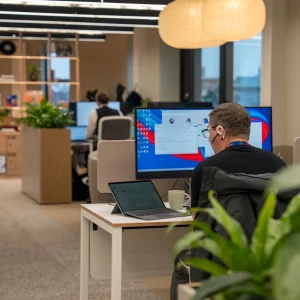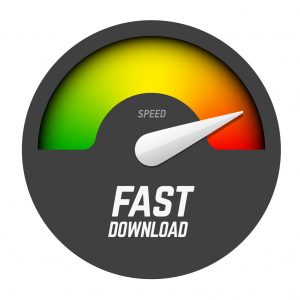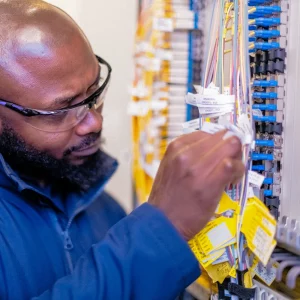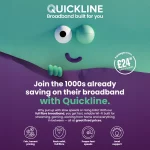Sponsored Links
Copyright Holders to Pay Lions Share of UK ISP Illegal File Sharing Enforcement Cost
Posted: 14th Sep, 2010 By: MarkJ
 The UK governments Department for Business, Innovation and Skills (BIS) has announced the result of its crucial internet copyright infringement "cost sharing consultation", a requirement of the Digital Economy Act 2010 (DEA), and revealed that Rights Holders (RH) will be forced to pay 75% of the costs for tackling online piracy while broadband ISPs will bear the remaining 25%.
The UK governments Department for Business, Innovation and Skills (BIS) has announced the result of its crucial internet copyright infringement "cost sharing consultation", a requirement of the Digital Economy Act 2010 (DEA), and revealed that Rights Holders (RH) will be forced to pay 75% of the costs for tackling online piracy while broadband ISPs will bear the remaining 25%.Industry regulator Ofcom UK has already concluded its first of three consultations on the matter (Online Copyright Infringement Initial Obligations Code). This set out how ISPs should tackle Copyright Infringement Reports (CIR) and send notifications (Warning Letters) to customers accused of unlawful file sharing (p2p) activity.
However Ofcom recently blamed delays with its final two consultations (costing and enforcement), which are running two months behind schedule, upon government dithering over cost sharing between ISPs and copyright holders (here). Today's news means that Ofcom should now be able to proceed with its second cost sharing consultation. But there's more.
Minister for Communications, Ed Vaizey, commented:
"Protecting our valuable creative industries, which have already suffered significant losses as a result of people sharing digital content without paying for it, is at the heart of these measures.
The Digital Economy Act serves to reduce online copyright infringement through a fair and robust process and at the same time provides breathing space to develop better business models for consumers who buy music, films and books online.
We expect the measures will benefit our creative economy by some £200m per year and as rights holders are the main beneficiaries of the system, we believe our decision on costs is proportionate to everyone involved."
"Protecting our valuable creative industries, which have already suffered significant losses as a result of people sharing digital content without paying for it, is at the heart of these measures.
The Digital Economy Act serves to reduce online copyright infringement through a fair and robust process and at the same time provides breathing space to develop better business models for consumers who buy music, films and books online.
We expect the measures will benefit our creative economy by some £200m per year and as rights holders are the main beneficiaries of the system, we believe our decision on costs is proportionate to everyone involved."
It's hard to gauge what "significant losses" actually means since most of the related research, which has been largely funded by copyright holders themselves, tends to assume that every "unlawful" download is equal to one lost sale.
In reality somebody who downloads 500 music tracks would never have brought that many in the first place. Not to mention that legal "digital content" has actually been growing, with most of any decline coming from old media. That is perhaps to be expected with people gradually swapping from CDs to iPods.
The cost sharing decision itself will apply to both the notification and appeals process. Indeed this is an improvement over some initial plans, one of which foresaw a 50:50 split. However most ISPs will be displeased at the prospect of having to shoulder any cost at all, while Rights Holders will be frustrated at having to burden 75%.
Trefor Davies, Chief Technology Officer at ISP Timico UK, commented:
"The Internet Service Providers’ Association (ISPA) and others argued long and hard for a beneficiary pays principle, which suggests that in fact the BIS postition should read 100% Rights Holder pays. That was always going to be a difficult one to win considering the whole dubious history of the DEAct.
Whilst I understand the logic in trying to ensure that the costs are minimised[,] I wonder if there is somewhere in European Law relating to government subsidies of industry – because that is effectively what is being done here. The Government is indirectly subsidising the Creative industry by taxing the internet industry and giving the taxes to Rights Holders."
"The Internet Service Providers’ Association (ISPA) and others argued long and hard for a beneficiary pays principle, which suggests that in fact the BIS postition should read 100% Rights Holder pays. That was always going to be a difficult one to win considering the whole dubious history of the DEAct.
Whilst I understand the logic in trying to ensure that the costs are minimised[,] I wonder if there is somewhere in European Law relating to government subsidies of industry – because that is effectively what is being done here. The Government is indirectly subsidising the Creative industry by taxing the internet industry and giving the taxes to Rights Holders."
In addition, ISP subscribers will not be charged a fee when they wish to use the appeal system to refute a copyright infringement notification. This is definitely very good news and a small victory for common sense. However the government is fearful that this could cause problems and might still introduce a cost.
BIS Statement Extract
[However] a free system risks the possibility of large numbers of unnecessary appeals, the Government will monitor the situation closely, and reserves the right to introduce a small fee at a later stage.
[However] a free system risks the possibility of large numbers of unnecessary appeals, the Government will monitor the situation closely, and reserves the right to introduce a small fee at a later stage.
Any significant number of appeals could also be a sign that the governments system is failing to work correctly and catching innocent people, thus rather than introducing a fee it should instead seek tighter rules over the standards of "evidence" provided by copyright owners.
Alleged abuse is tracked by monitoring the Internet Protocol ( IP ) addresses of online users, which are assigned to your computer each time you connect to the internet and made public on P2P networks. This is not an effective way of determining a computer user’s true identity and can catch innocent people.
An IP can easily be faked, hijacked, redirected and generally abused or used in ways that the systems employed by such trackers cannot detect. Furthermore the owner of a particular connection/IP, such as in case of a hotel, business or shared public Wi-Fi network (secure or not), may not be the individual responsible for the act itself.
The government's decision will now be notified to the European Commission (EC) before being introduced in Parliament as a Statutory Order. Ofcom’s Online Copyright Infringement Initial Obligations Code will implement the notifications process and will also reflect the decision on costs. This will come into force in the first half of 2011 (effectively a 3 month delay).
Full BIS Report (PDF)UPDATE 11:38am
Online Infringement of Copyright (Initial Obligations) Cost Sharing
Added a comment from Timico's tech chief.
Search ISP News
Search ISP Listings
Search ISP Reviews
Latest UK ISP News








Cheap BIG ISPs for 100Mbps+
150,000+ Customers | View More ISPs
Cheapest ISPs for 100Mbps+
Modest Availability | View More ISPs
Latest UK ISP News
Helpful ISP Guides and Tips
Sponsored Links
The Top 15 Category Tags
- FTTP (6833)
- BT (3896)
- Politics (3086)
- Business (2780)
- Openreach (2673)
- Building Digital UK (2519)
- Mobile Broadband (2490)
- FTTC (2145)
- Statistics (2139)
- 4G (2106)
- Virgin Media (2036)
- Ofcom Regulation (1785)
- 5G (1748)
- Fibre Optic (1607)
- Wireless Internet (1601)
Sponsored
Copyright © 1999 to Present - ISPreview.co.uk - All Rights Reserved - Terms , Privacy and Cookie Policy , Links , Website Rules































